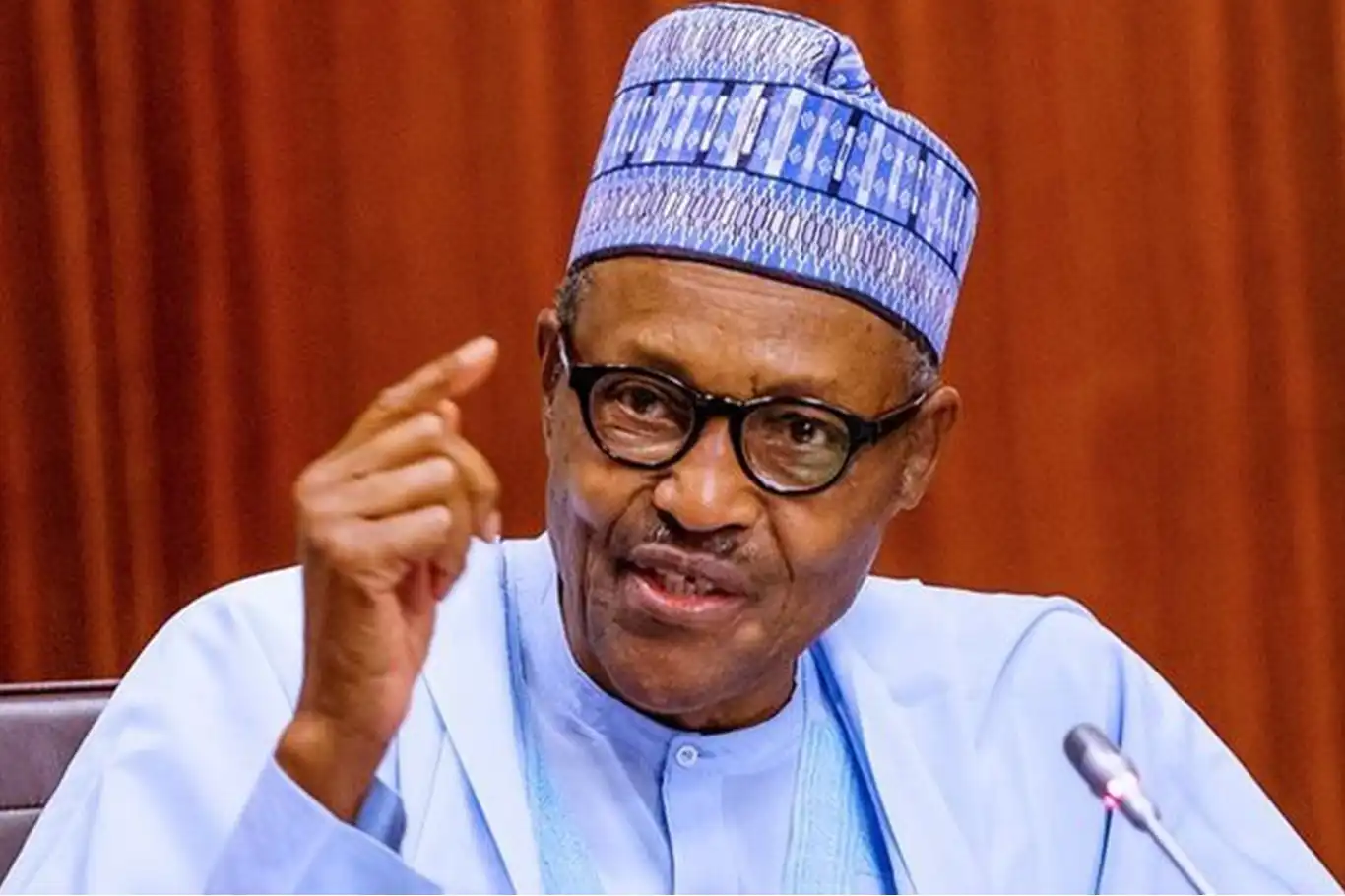Nigeria’s former President Muhammadu Buhari dies at 82 in London


Nigeria is mourning the death of former President Muhammadu Buhari, who passed away in London on Sunday at the age of 82 after a prolonged illness.
His death was confirmed by presidential spokespersons on behalf of President Bola Ahmed Tinubu, who announced the passing in a statement posted on social media platform X.
“President Buhari died today in London at about 4.30pm [1530 GMT], following a prolonged illness,” the official statement read.
Buhari, a towering figure in Nigeria’s modern political history, led Africa’s most populous nation during two distinct eras: first as a military head of state between 1983 and 1985, and later as a democratically elected president from 2015 to 2023. He was the first Nigerian opposition candidate to unseat an incumbent president through the ballot box, defeating Goodluck Jonathan in what was hailed as Nigeria’s freest and fairest election.
Known for his austere image and anti-corruption stance, Buhari cultivated a reputation as a man of discipline and conviction. He often described himself as a "converted democrat" after transitioning from military strongman to civilian president. Clad in flowing kaftans and traditional prayer caps in his later years, Buhari became a symbol of reformist ambition to many Nigerians—though his legacy remains deeply divided.
Born on December 17, 1942, in Daura in Nigeria’s northwestern Katsina State, Buhari joined the military at age 19 and rose to the rank of major general. In 1983, he led a military coup that toppled a civilian government, vowing to root out corruption and restore discipline. His rule was marked by a strict crackdown on dissent, economic austerity, and infamous decrees—among them, attempts to curtail press freedom and public indiscipline.
In one of the most controversial moments of his military regime, his government was implicated in an attempted abduction of a former Nigerian minister living in exile in London. The bizarre plot, which involved smuggling the critic in a crate, was foiled by British airport authorities in 1984.
Buhari was overthrown in a palace coup in August 1985, spending the next decades in relative political obscurity. He joined various opposition movements and contested several presidential elections before eventually winning the presidency in 2015 under the banner of the All Progressives Congress (APC).
His civilian tenure began with soaring expectations. Buhari was seen as a no-nonsense leader who would restore order and crack down on endemic graft. His campaign slogan—anchored in the promise to “kill corruption before it kills Nigeria”—resonated with millions.
But his administration soon ran into difficulties. Buhari delayed naming a cabinet for six months, which many said hampered economic confidence. The slump in global oil prices during his early presidency plunged Nigeria into its first recession in over two decades, earning him the nickname “Baba Go Slow.”
Despite these setbacks, he secured a second term in 2019. However, widespread insecurity overshadowed much of his time in office. Under Buhari’s leadership, violence spread from the northeast to other parts of the country as jihadist insurgents, armed bandits, and separatist militias exploited Nigeria’s overstretched security apparatus. Critics argue that his administration failed to deliver on its most pressing promises: restoring security, boosting economic stability, and rooting out corruption.
Buhari’s political career spans more than four decades—filled with both admiration and criticism. For supporters, he symbolized moral clarity and national discipline in a turbulent political landscape. His famous mantra, “I belong to everybody and I belong to nobody,” reflected his desire to project impartial leadership. Yet for many Nigerians, his leadership fell short of transforming the country’s entrenched problems.
Throughout his presidency, Buhari was frequently abroad for medical treatment, often in London, prompting widespread speculation about his health. Nonetheless, he remained a dominant force in Nigerian politics up until his handover to President Bola Tinubu in May 2023.
Muhammadu Buhari is survived by his wife, Aisha Buhari, and children. Details regarding his funeral arrangements are expected to be announced by the presidency in the coming days.
As Nigeria reflects on the life and times of one of its most consequential leaders, tributes continue to pour in from across the country and around the world. (ILKHA)
LEGAL WARNING: All rights of the published news, photos and videos are reserved by İlke Haber Ajansı Basın Yayın San. Trade A.Ş. Under no circumstances can all or part of the news, photos and videos be used without a written contract or subscription.
Qatar’s Ministry of Interior has announced that citizens and residents whose private properties were damaged by debris from intercepted Iranian missiles during the June 23 attack on the Al Udeid U.S. airbase will receive compensation.
At least 18 Palestinian civilians were killed and several others wounded on Monday as Israeli occupation forces launched a fresh wave of airstrikes across multiple areas of the Gaza Strip, according to medical sources and local reports.
Dr. Abdul Bari Omar, CEO of Da Afghan Breshna Sherkat (DABS), held key discussions this week with investor delegations from Uzbekistan and Kazakhstan to explore new opportunities for investment in Afghanistan’s electricity generation sector.
A powerful earthquake measuring 6.8 on the Richter scale struck the Tanimbar Islands in southeastern Indonesia on Monday, according to the German Research Centre for Geosciences (GFZ).